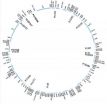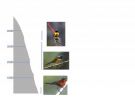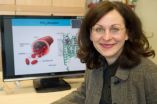(Press-News.org) Alexandria, Va., - Global Positioning System (GPS) technology was conceived in the 1960s to provide precise time and location data to the U.S. military, but it was soon embraced by geodesists and earth scientists. The first major test of GPS as a seismic tool occurred on Oct. 17, 1989, when the Loma Prieta earthquake struck San Francisco just as the third game of the World Series was about to begin at Candlestick Park. The quake killed 63 people, injured several thousand and caused an estimated $6 billion in damage.
Prior to the quake, geoscientists had placed GPS markers in and around the San Francisco area. Immediately after the quake, researchers converged on the area to collect and compare the pre- and post-quake GPS data, which revealed the direction and speed of surface movements, allowing scientists to infer the pattern of slip on the fault plane that had ruptured far underground.
GPS had proved its worth. Whereas strain gauges, trenching and other approaches provide useful information on crustal motion, only GPS can provide scientists with precise measurements of both large- and small-scale displacements. Today, GPS is an essential tool for geoscience research that extends far below — and above — Earth's surface.
Read more about how GPS benefits science as well as the millions of people living close to fault systems in the May issue of EARTH Magazine, now available on the digital newsstand: http://bit.ly/1lD7PJF.
For more stories about the science of our planet, check out EARTH Magazine online or subscribe at http://www.earthmagazine.org. The May issue features stories on earthquakes setting off electrical displays in rift zones, scientists discovering 17 ancient super-eruptions in Utah and Nevada, and a recipe for remediation that mixes acid mine drainage with contaminated wastewater from hydraulic fracturing, plus much, much more.
INFORMATION:
Keep up to date with the latest happenings in Earth, energy and environment news with EARTH magazine online at: http://www.earthmagazine.org/. Published by the American Geosciences Institute, EARTH is your source for the science behind the headlines.
The American Geosciences Institute is a nonprofit federation of 49 geoscientific and professional associations that represents more than 250,000 geologists, geophysicists and other earth scientists. Founded in 1948, AGI provides information services to geoscientists, serves as a voice of shared interests in the profession, plays a major role in strengthening geoscience education, and strives to increase public awareness of the vital role the geosciences play in society's use of resources, resiliency to natural hazards, and interaction with the environment.
EARTH Magazine: Precise to a fault: How GPS revolutionized seismic research
2014-04-30
ELSE PRESS RELEASES FROM THIS DATE:
Simple sequence repeats for population-level studies of pines
2014-04-30
Simple sequence repeats, abbreviated SSRs and frequently referred to as microsatellites, are highly variable sections of the genome. 'Sequence repeat' refers to the fact that a nucleotide motif is repeated. 'Simple,' because the repeated sequence often consists of only a couple of nucleotides—for example, ATAT.
Because these markers typically have high rates of molecular evolution, the number of repeats present in the genome often differs between individuals. By isolating SSRs and comparing length differences between taxa, evolutionary relationships can be inferred. Their ...
Regenerative medicine approach improves muscle strength, function in leg injuries
2014-04-30
PITTSBURGH, April 30, 2014 – Damaged leg muscles grew stronger and showed signs of regeneration in three out of five men whose old injuries were surgically implanted with extracellular matrix (ECM) derived from pig bladder, according to a new study conducted by researchers at the University of Pittsburgh School of Medicine and the McGowan Institute for Regenerative Medicine. Early findings from a human trial of the process and from animal studies were published today in Science Translational Medicine.
When a large volume of muscle is lost, typically due to trauma, the ...
Frozen meal eaters get more vegetables including greens, beans and whole grains but with lower total calories vs. fast food restaurant eaters
2014-04-30
SAN DIEGO (April 30, 2014) – New analysis of data from the 2003-2010 What We Eat In America (WWEIA) National Health and Nutrition Examination Survey (NHANES), a program of the Centers for Disease Control and Prevention (CDC), indicates that consumers of frozen meals (1) compared to consumers of quick service restaurant (QSR) meals (2) had lower calorie intakes and better Healthy Eating Index (HEI) score. In fact, the analysis revealed that those who consumed frozen meals consumed 253 fewer calories than those who consumed a quick service restaurant meal.
These results ...
Competition for ecological niches limits the formation of new species
2014-04-30
The rate at which new species evolve is limited by competition for ecological niches, report scientists from the University of Chicago in Nature on April 30. The study, which analyzes the evolutionary and genetic relationships between all 461 songbird species that live in the Himalayan mountains, suggests that as ecological niches within an environment are filled, the formation of new species slows or even stops.
To study what controls the process of speciation, Trevor Price, PhD, professor of ecology and evolution at the University of Chicago, Dhananjai Mohan of the ...
Initial research: Mango's effects on ulcerative colitis & bone parameters in animal models
2014-04-30
SAN DIEGO, CA – April 30, 2014 – Three new mango-related studies were presented this week at the 2014 Federation of American Societies for Experimental Biology (FASEB) in San Diego, revealing initial findings on the effects of mango consumption on ulcerative colitis and bone parameters in animal models.
"The mango industry's nutrition research program is committed to advancing our understanding of the role mangos can play as part of a healthy diet," said Megan McKenna, Director of Marketing for the National Mango Board. "These studies provide important insights that ...
Multiple consecutive days of tornado activity spawn worst events
2014-04-30
WEST LAFAYETTE, Ind. - Significant tornado outbreaks and especially strong tornadoes are more likely occur within periods of activity lasting three or more days, according to a Purdue University tornado expert.
Jeff Trapp, a professor of earth, atmospheric and planetary sciences, examined 30 years of U.S. weather records and found that an outbreak of 20 or more reported tornadoes had a 74 percent probability of occurring during a period of tornado activity lasting three or more days. During those same periods, a tornado rated 3 or higher on the Enhanced Fujita scale had ...
MS researchers find brain & cognitive reserve protect long-term against cognitive decline
2014-04-30
West Orange, NJ. April 30, 2014. Multiple sclerosis researchers have found that brain reserve and cognitive reserve confer a long-term protective effect against cognitive decline: Sumowski JF, Rocca MA, Leavitt VM, Dackovic J, Mesaros S, Drulovic J, Deluca J, Filippi M. Brain reserve and cognitive reserve protect against cognitive decline over 4.5 years in MS. Neurology. 2014 Apr 18. doi: 10.1212/WNL.0000000000000433 [Epub ahead of print]. James Sumowski, PhD, lead author of the article, and John DeLuca, PhD, are at Kessler Foundation. Co-authors are from the Manhattan ...
'US Should significantly reduce rate of incarceration,' says new report
2014-04-30
WASHINGTON -- Given the minimal impact of long prison sentences on crime prevention and the negative social consequences and burdensome financial costs of U.S. incarceration rates, which have more than quadrupled in the last four decades, the nation should revise current criminal justice policies to significantly reduce imprisonment rates, says a new report from the National Research Council.
A comprehensive review of data led the committee that wrote the report to conclude that the costs of the current rate of incarceration outweigh the benefits. The committee recommended ...
Seeing the bedrock through the trees
2014-04-30
University of California, Berkeley, geologist William Dietrich pioneered the application of airborne LIDAR – light detection and ranging – to map mountainous terrain, stripping away the vegetation to see the underlying ground surface.
But that didn't take him deep enough. He still couldn't see what was under the surface: the depth of the soil, the underlying weathered rock and the deep bedrock.
He and geology graduate student Daniella Rempe have now proposed a method to determine these underground details without drilling, potentially providing a more precise way to ...
Hope for better drugs to treat stroke and heart attacks
2014-04-30
An international team of researchers in cooperation with the University of Bonn has taken two "snapshots" of a receptor which are of critical importance for blood coagulation. The scientists now hope to be able to develop novel drugs using these results. These include tailor-made blood-thinning substances for heart attack and stroke patients whose effects are reversible and better controllable than those of current therapies. The researchers are presenting their results in the renowned journal "Nature."
After a cut to the finger, blood platelets come into play: they adhere ...



